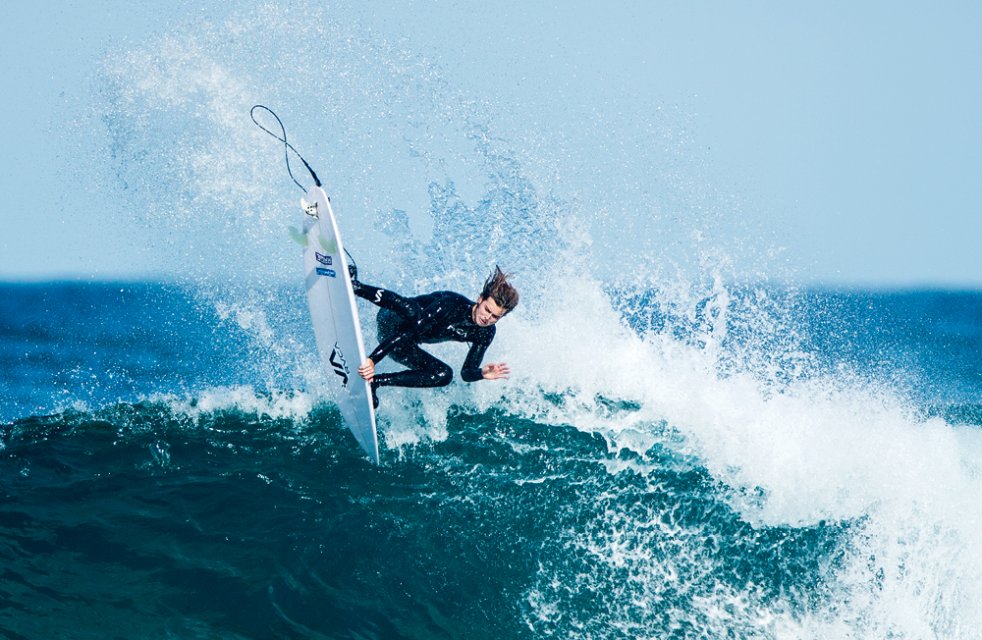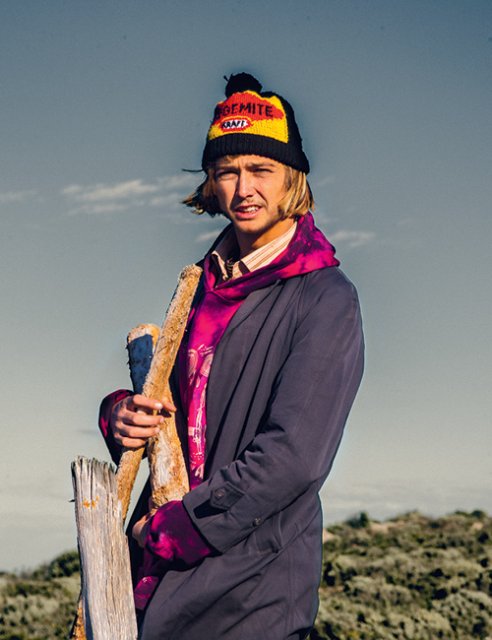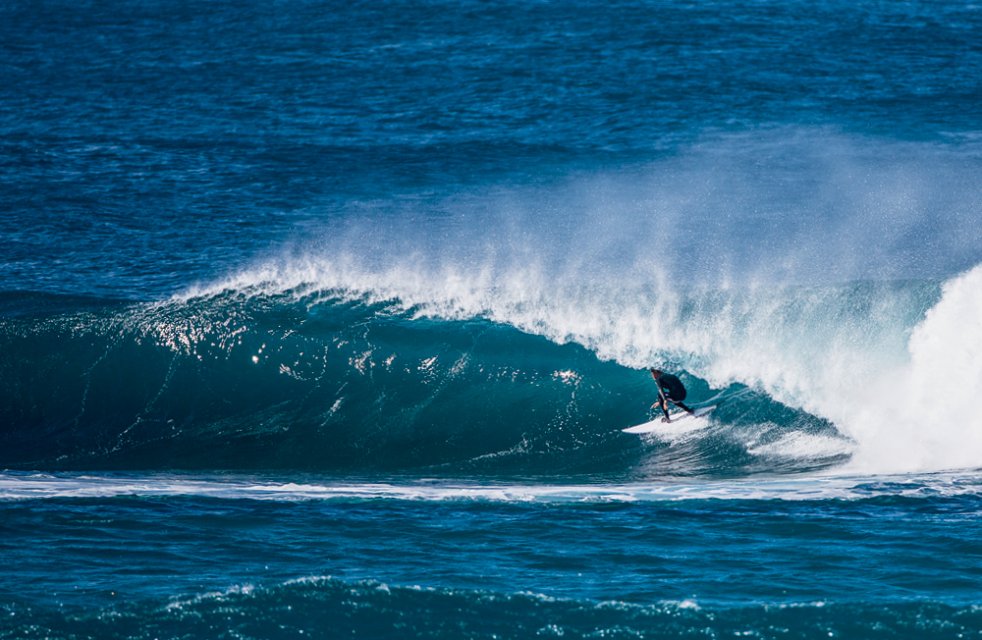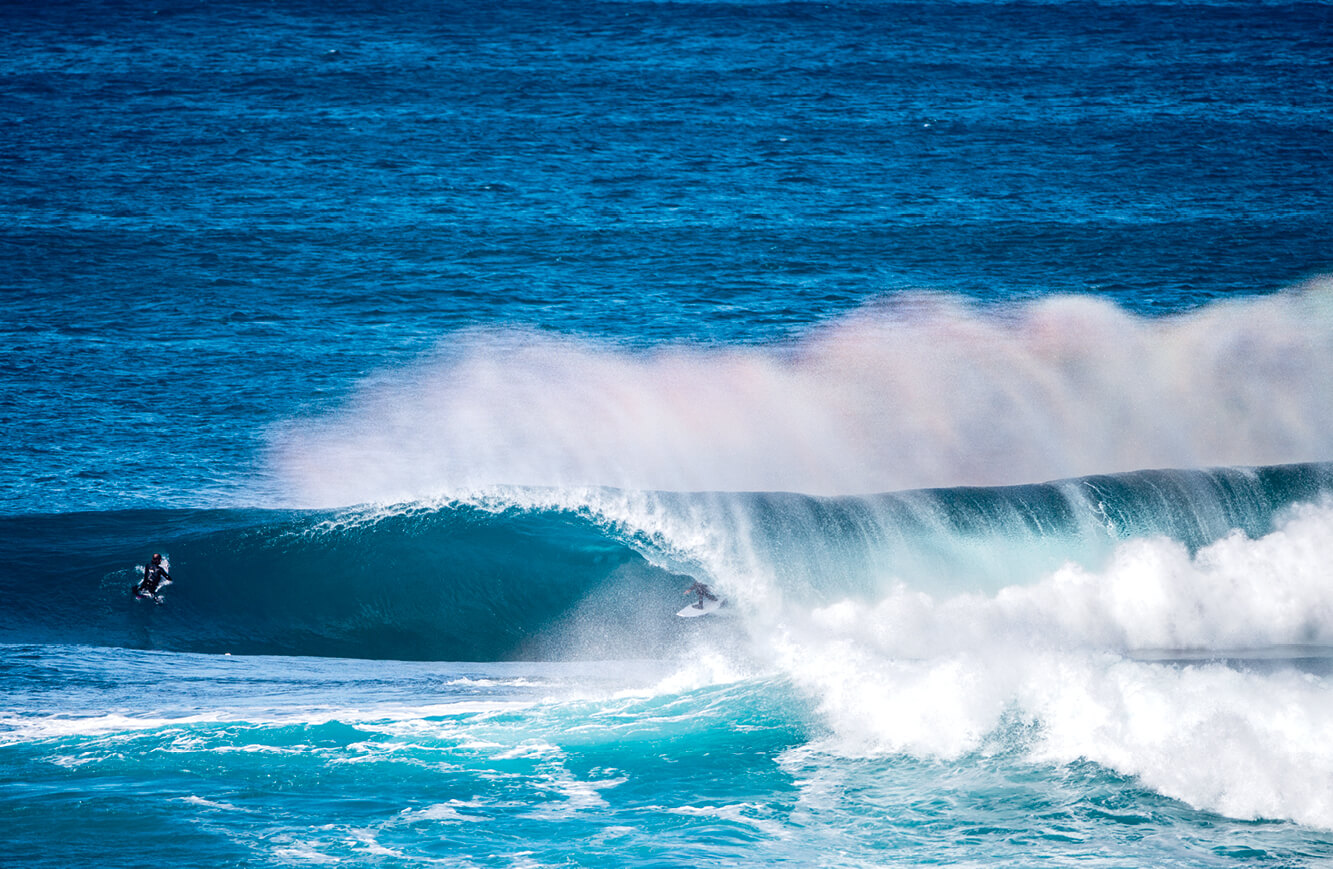The Bug Goes Bush
It’s Saturday night in inner-city Sydney and Beau Foster and his mates are stomping the golden mile that is King Street, Newtown, making menaces of themselves as they go – pulling faces at fine diners through restaurant windows, dancing between pedestrians, and wisecracking the heads stuck in traffic.
They’re on their way to the Pist Idiots/Drunk Mums double-header gig in nearby Chippendale, which will be a reunion of sorts for Beau and a couple of his mates from the ‘The Perra’ aka Milperra, and Revesby, who are playing in one of the bands. Milperra is the working-class suburb located in Sydney’s landlocked western suburbs Beau grew up in until age 13. It’s famous for the time the Comancheroes and Bandidos bikie gangs went toe-to-toe with shotguns in broad daylight in 1984 leaving 7 dead and 28 injured in what became known as the ‘Milperra Massacre’ but Beau didn’t mind it.
“It was a sick zone to grow up in I reckon – real free, real safe I felt like,” he says.
The son of a carpenter from Mascot, in Sydney’s south and a mother from Malabar, just down the road from Maroubra (“Bunnies fans,” he says), Beau lived an itinerant existence for most of his childhood, first in the Northern Rivers of NSW, where his parents lived until he was two when they split. He, his three brothers and their mum then moved to Five Dock in western Sydney, then Croydon also in Western Sydney, before settling in Milperra, where he lived for the next ten years. It was an easy enough transition to make for Beau who was too young to surf. Less for his older brothers who’d spent their childhood getting acquainted with Lennox Head.

“(My brother) Nathan went on strike in year ten. He went, I’m not going to school until we move back (to the coast)…the principal had to call him after a week and a half of not going to school,” recalls Beau.
The strike proved effective and Beau’s step-dad started looking for work somewhere on the coast, eventually finding some in Gosford, then a low income neighbourhood on the NSW Central Coast. Beau was 13 when the family made the move to a run-down fibro shack in Norah Head. Two years later he was a sponsored surfer riding for Hurley and shortly after that doing the Junior Series alongside Jack Freestone and Mitch Crews.
Not long after that he was dispatched to the USA by Hurley. The transition from low-income working-class upbringing to pretty boy Californian surf star was seamless at first. He shacked up with a glamorous local girl from a well-to-do middle class family, formed a crew with Andrew Doheny, Ford Archbold and filmmaker Matt Tromberg (now Metal Neck) and did his best to make a fist of it, which basically meant saying yes to everything.
“It was so new to me and it felt like if anything it was doing me well, so I stayed there,” he says.
Over the course of six months in the US he travelled to Tahiti with Reef, did a road trip from Milwaukee to Chicago pushing kids into waves on the Great Lakes, was a regular at insanely crowded Trestles and bit by bit slipped into a cloying funk of personal and cultural amnesia.
“I started looking around me and was like, ‘This is not me, ay.’ I started wigging out. I remember waking up and you’d be going to the mall, going to those theme parks, going to eat take away food. I’m like, ‘I didn’t grow up like this, this is spinning me out now.’ I’d been there for that long and I was like, this is not me. I started tripping,” he says, adding, “Even the girl I was dating, super nice, but she’s not me either. I fully conned meself!” he laughs.
For all its surface similarities, America is not Australia. The first clue came in the fact many of the proud, working class jobs his father, brothers and mates did – carpentry, plumbing, cleaning, landscaping etc – were done by illegal Mexican immigrants on slave wages. The waves were overrated and socialising became a weird Beverly Hills-style melodrama. He couldn’t figure out if it was real or fake.
“There was a lot of drama. (My girlfriend) was living in a part of California where that stereotype was really true, it was completely spot on,” he recalls.
Beau also realised he was gradually being pigeonholed as a no-talent pretty-boy and that wouldn’t do it all.
“People saw me as that and even the people on the team, they thought I couldn’t surf and it really bummed me out. I was like, ‘forget this, I’m outta here’,” he says.
Tonights gig is being held in a dungeon of a venue in Chippendale just down the road from the Redfern housing commission flats. The angst in the mostly young, white, working class crowd is palpable. Sydney is a city on a tight leash, politically, legally and economically. It is the harbourside jewel in the Australian crown and has been a magnet for global capital and investment since the Sydney Olympics blew its cover in 2000. Living costs have been on the up and up ever since, pushing living standards down for many in the working class, leading to the proliferation of an angry, volatile punk scene. The past week has also been one of escalating tension between the American war machine and North Korea with the Australian investment-banker Prime Minister, Malcolm Turnbull, pledging to honour our alliance with America and send more young men to die on a battlefield in Asia if Donald Trump decides to hit fire with his fat, little fingers. Outside the venue it’s freezing with a 50 knot sou-wester whipping straight off the Snowy Mountains. Inside it’s a furnace.

“It’s an earthquake tonight.
The FBI & CIA can’t do nothin,
Let’s Fight.
Fuck World War III
Rather LSD,” sing The Drunk Mums, as Beau, dressed in a faded-green trench coat and purple RAGE hoodie, ferries water and beer across the mosh to the stage. Now comfortably settled back in Australia, he can’t believe he lost his way in the ‘American Dream.’
“I look back at it and I’m like how did I get so involved in that? It’s so crazy but you’re so young and you’re so influenced by shit around you at that stage,” he says.
“You’re like, ‘This is new, this is cool,’ and you’re trying to view it. And it took a while for me to view it from outside the box because I was so in it. It was a big learning curve,” he says.
Now he sees the contagion of American culture everywhere, especially in the houses. Beau tells me the story of watching a a whole headland’s worth of of native bush near where he grew up on the Central Coast cleared for a southern Californian Truman Show-esque housing development (as it happened, just prior to development beginning a bush fire coincidentally ripped through the exact area where the houses were meant to be built, clearing it).
“It will never stop. They’re trying to turn us into America. I don’t understand why they keeping taking so much from America. It’s poison. Every single house looks the same. It’s ridiculous,” he says.
If anything Beau’s time abroad only consolidated who he was and what he was meant to be doing. Back in Australia he moved in with Ellis Ericson at his humble, halcyon-era cottage on a farm near Bangalow. So began a glorious coming of age period for Beau in which he teamed up with Ellis, Creed Mctaggart, Shaun ‘Chunny’ Manners, Duncan Mcnicol and filmmaker-musician, Toby Cregan, to do laps of the eastern, southern and western coastlines, scoring waves, dodging sharks, and basking in the crisp, dusty isolation.
“I got this Camry and I got to my senses,” he says. “I always remember going on road trips when I was in Oz, so living in Byron I was like, ‘boys, jump in the car let’s go.’ We’d do road trips down to the south coast, or road trips to Yamba. The influence was mainly being young and spontaneous. It came almost from my own self but we were all together and the mixture of people was inspiring too,” he says.
Growing up Beau was bewitched by the great Australian surfing outlaws and eccentrics – the likes of Michael Peterson, Matt Hoy, Andrew Kidman, Camel, George Greenough (US-born, North Coast-based), Rasta, Chris Brock and Maurice Cole. As his surfing abilities and understanding have evolved he’s been lucky enough to meet most of them. He makes regular trips to Greenough’s shack near Broken Head to listen in on design discussions between him, Rasta and Ellis; he often spends time taking in the wisdom of Andrew Kidman and Chris Brock; and last year Beau made an epic pilgrimage to Maurice Cole’s farm turned shaping bay where he spent five days soaking up the insane existence of one Australian surfing’s great characters and left with a couple of boards.
“When I went to see Maurice that changed my whole perspective,” he says. “He’s so intense and erratic and he’s just spilling all this shit on you and telling you all these stories and I guess that inspired me because that time he lived in is a time I believe in,” says Beau.
“That was a functional way of living…I like believing in instinct. His stories just felt like that: ‘I had this instinct and I had to go,’” he says.
Beau has rarely spent more than a couple months in the one spot in five years. He’s close to broke and has little plan or savings for the future, and that’s fine with him. Having the opportunity to chase waves and make the most of this vast continent is payment enough.
“I don’t have much and I never have,” says Beau, adding, “Being nomadic and being wherever you want at whatever time and living off a dime…I hold that in my heart pretty heavily.”
The red-earth isolation and consequential waves he’s spent the last few years chasing have also given him a pure outlook on both the aim and responsibilities of being a professional surfer in this strange and saturated internet age. He doesn’t mince words when listing the dilemmas of modern day culture.
“The purpose is being lost,” he says.
“In the last 15 years, not even 15, the last five, the dramatic change has been crazy. From the advertising, to the selling point, to the market point, to the people they have working for them, to the generalising of what surfing is, that’s why it’s getting lost,” he says.

The next time I run into Beau he’s playing a gig at the Heritage Hotel in Bulli alongside Ellis and Creed in Wash. The gig opens for Andrew Kidman’s latest film project but the boys are rusty and struggle for rhythm during the set. It builds nicely toward the end, especially with the final two songs, but they’re not happy afterwards. “Full joke band,” says Ellis, slumped against the bar, once its over.
“Sometimes it’s fucked, it’s actually painful,” says Beau later, as he packs up the drum kit. “You’re just not into it, you’re even off the crowd almost.”
After the gig we end up at my house – a six person share house in nearby bush. We take seats around the fire where we are joined by a belligerently drunk friend of my flatmate. He’s one of those middle class “skater-creative-hipster” types masquerading as a tough and starts picking on Beau, commenting loudly on his long hair, calling him “beautiful” and being generally disrespectful. It doesn’t go down well.
“Should I just deck him?” asks Beau, as Ellis and I stand in my kitchen waiting for grilled cheese to melt.
“You gotta give him a square go,” I reply.
“Yeah, no dog shots,” agrees Beau.
“Beau’s got the reach,” says Ellis, “I back him.”
“You could fight on the grass down the bottom there, that way no one gets hurt,” I offer.
“That’s huge!” says Beau, cracking up. “I gotta do it. Fighting him on the grass would be so eighties.”
[shopify embed_type=”product” shop=”coastalwatch-book-shop.myshopify.com” product_handle=”new-surfing-world-issue-392″ show=”all”]








